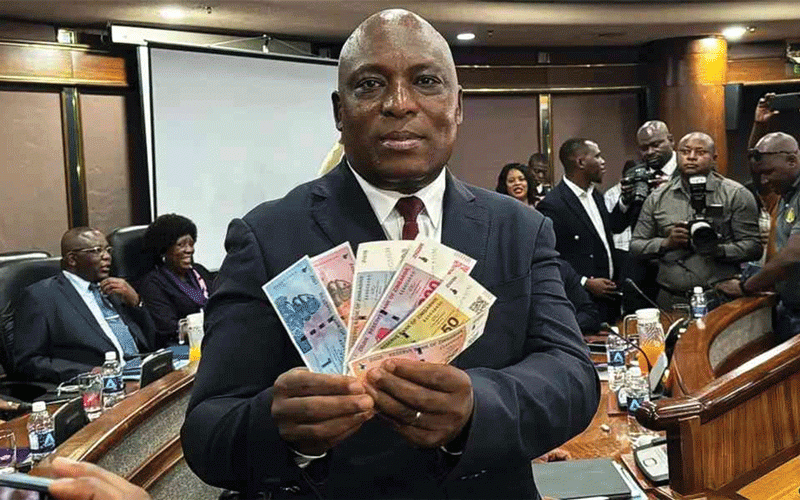
One of the oldest retail giants in the country, the Zimbabwe Stock Exchange (ZSE) listed Meikles Limited, released its FY24 results. Meikles at some point once had operations spanning from Health, Home and Beauty stores to Bar and Restaurant franchises, and in some instances merged with a financial institution, a textile company and a tea manufacturer to become one of the most diversified conglomerates in the country.
Although the supermarket division, also referred to as the retail division has always contributed the lion’s share to the company’s top line, there is no denying that the other divisions have either been sold or their contribution has dwindled. For completeness purposes, Meikles still has a properties division, security services and hotel segment. However, other divisions contributions have shrunk to an extent where one would not be exaggerating if she just considers the company just a supermarket owner as over 98% of its revenues are now coming from that division.
With a 51/49 per cent partnership with the South African Pick n Pay, Meikles rejuvenated its TM supermarket brand into TM Pick n Pay and has become one of the biggest fast-moving consumer goods retail chains. Concentrating on the supermarkets could have been a very sound strategic move, especially in a normal economy, but the current operating environment has made the company a target for dumping the local currency.
Zimbabwe is currently operating a multi-currency regime where the greenback and the local currency are the most used legal tenders in the country.
A survey by the national statistics authority, Zimstat indicated that about 80% of the economy traded in the United States dollars with other sectors such as real estate seeing as much as 90% dollarisation.
The monetary authorities early this year introduced a new structured currency called the Zimbabwe Gold (ZiG) and pledged to reduce the dollarisation levels to at least 70% by the end of the year.
The biggest question that has grappled many economic agents is where the demand for local currency will come from, considering what has happened to other versions of the local currency in the past.
Although for corporates the answer seemed to lie in taxes, with some taxes demanded exclusively in local currency, the answer for the individuals remained unfound.
- Mnangagwa ban added fuel to a fire
- Mnangagwa ban added fuel to a fire
- Meikles seeks nod for LSE delisting
- Tea with business alchemist Carol White
Keep Reading
However, looking at Meikles’ financial results it appears that the TM Pick n Pay stores have become the dump site for the local currency.
Formal retail outlets are obliged to quote an exchange rate within a certain range of the official exchange rate, and in most cases, this rate is overvalued compared to alternative exchange rates. This pushes people to exchange their foreign currency elsewhere and come to use the local currency in these shops.
Meikles reported that revenue in foreign currency was below 20% of total sales and blamed the uneven enforcement of the exchange rate policy for this.
In other words, Meikles is saying that if everyone in the economy used the same exchange rate, perhaps their currency mix would match that of the rest of the country.
OK Zimbabwe, a close competitor told analysts at its half-year analyst briefing that the USD component of their sales had increased from 10% levels to 30%.
TM Pick n Pay also still has a significant portion of its products quoted in local currency in store, which is a contrary strategy to that taken by its close competitors, OK stores and Spar which are quoting prices in USD.
From a customer’s perspective goods that are quoted in a stable currency are usually cheaper since they do not have that margin priced to hedge for currency depreciation. The Sales Volume of the retail division also came off 4.2% in the financial year under review.
Other listed companies are, however, enjoying a fair chunk of USD sales with Dairiboard reporting that 84% of their sales were in hard currency and Delta Corporation also reporting similar numbers.
Some of these companies have even gone a step further to report their financial statements in USD, which consumers of that information are finding more useful and easier to make decisions from compared to the local currency.
Dairiboard, which is a food manufacturer referred to the route to market as key in its strategy making references that it wants to be closer to the market and build sustainable supply chain models.
This is a direct threat to the business model of retailers like TM Pick n Pay and this has mainly been necessitated by the currency issues where the manufacturer can collect more foreign currency from other routes than the formal market.
Distribution Group Africa (DGA) which is a subsidiary of the Victoria Falls Stock Exchange (VFEX) listed Axia Corporation also admitted that at some point it had to slow down its supply to some of the retailers who were failing to stick to their payment terms and requirements.
The retail market continues to be a delicate market mainly because of these macroeconomic factors and TM Pick n Pay may have to be extra innovative to survive. There is no doubt that the company has the capacity to do that and it is shown by its resilience despite the turmoil economic environment.
Hozheri is an investment analyst with an interest in sharing opinions on capital markets performance, the economy and international trade, among other areas. He holds a B. Com in Finance and is progressing well with the CFA programme. — 0784 707 653 and Rufaro Hozheri is his username for all social media platforms.






